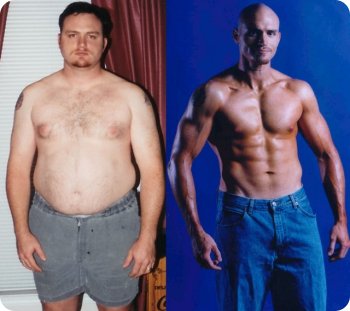
Originally posted on November 30, 2006 @ 3:38 pm
A healthy body and a sound mind

Originally posted on November 30, 2006 @ 3:38 pm

One could have never imagined that excess weight could create fatal health conditions for our health that. Everybody is motivated to lose weight. The millions of people, fighting against their weight problem try all different methods to achieve success. The bitter truth is that these weight loss methods produce different results for different personalities.
The ideal weight management method can only be the one which provides the desired results sustainable over a long period of time. Intensive research has been conducted by various weight loss institutes and other health organizations to conclude that the best possible weight management method is the one which works on a long term basis and also has minimum side effects.
The prescribed diet pills in conjunction with healthy food and regular exercise can give phenomenal results and help to lose weight easy way. Diet pills have always been popular when it comes to quick and easy weight loss. Before starting with the diet pills one must ensure about the quality and side effects of it. Only prescribed and Food and Drug Administration (FDA) approved diet pills should be considered. The most popular prescribed diet pills are Phentermine and Didrex.
Originally posted on December 1, 2006 @ 11:57 pm
Kids need to be constantly reminded about eating the right foods to maintain good health as they’re growing up. Parents have to be on top of their children’s diet to ensure their proper development and avoid problems later on. Health problems linked to how children eat include obesity, asthma, diabetes, hypertension and attention deficit hyperactivity disorder (ADHD).
A great way of teaching kids the value of eating natural and healthy foods is by making it fun for them. Fortunately, parents of today can use the apps as their partners in this endeavor as an after school care activity.
This is a mobile app that can be downloaded for free from iTunes. It allows the user to scan foods with a bar code to get details (ingredients), both positive and negative, on how healthy it is. It makes for a fun point and shoot video game that, for sure, your kids will enjoy. [Read more…]
Originally posted on June 27, 2013 @ 6:09 am
 Polycystic ovary syndrome is a relatively common condition in women, although it is not often diagnosed. With advancement in technology and more awareness, more women are able to determine if they are suffering from this syndrome, also known as PCOS. The condition is characterized by numerous small cysts in the ovaries, which interfere with the production of hormones. As a result, the male hormone testosterone is produced in higher quantities. The effects are manifested in various ways, some of which include fertility problems, irregular menstruation, obesity, and even increased risk for type 2 diabetes and heart problems.
Polycystic ovary syndrome is a relatively common condition in women, although it is not often diagnosed. With advancement in technology and more awareness, more women are able to determine if they are suffering from this syndrome, also known as PCOS. The condition is characterized by numerous small cysts in the ovaries, which interfere with the production of hormones. As a result, the male hormone testosterone is produced in higher quantities. The effects are manifested in various ways, some of which include fertility problems, irregular menstruation, obesity, and even increased risk for type 2 diabetes and heart problems.
The exact cause of PCOS remains a mystery to doctors and researchers. However, the symptoms are clear and some researchers believe that it is closely linked to an over active sympathetic nervous system. This system is what controls involuntary bodily functions such as the dilation of pupils.
A group of Swedish researchers conducted a study recently, wherein women with PCOS were divided into three groups. The first group underwent electro-acupuncture (a weak electric current is passed through the needles). The second group underwent a guided exercise routine (at least three times a week). The third group had no additional treatment or instructions. The findings? The activity of the sympathetic nervous system of the first two groups was considerably lower and the women who had acupuncture had a plus: more regulated menstruation. More than this, they also had lower levels of testosterone.
If you have PCOS or know anyone with PCOS, you might want to consider acupuncture.
Originally posted on August 24, 2011 @ 1:27 pm